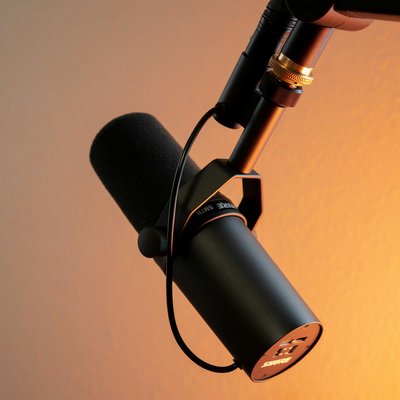The promotional power of podcasts

Millions of people listen to podcasts every day, so why isn't it one of the most prominent cha…

In the first instalment of our #Mindhumm project with Angelfish Fieldwork, participants discussed dating apps and the impact they’re having on our love lives, our confidence and our connections.
According to a 2021 YouGov survey, 16% of adults aged 25-34 say they met their romantic partner through a mobile app, and this is only set to increase as the trend towards online dating grows.
As part of our Mindhumm project, we recently ran a qualitative research session to understand what our diverse community of participants thought about dating apps in particular. From convenience to building connections and the gamification of the dating experience, their opinions were wide-ranging and thought-provoking.
As our lives become busier, it’s unsurprising that we’re drawn towards more convenient options. Amongst our participants, convenience was a key talking point for many in the group. However, views on whether convenience in this area was a good or a bad thing were very mixed.
One participant thought this made a lot of sense in our busy world and told us, “People are busy, so it’s just easier to find someone on apps now.”
However, another commented that they’ve noticed things have changed quite dramatically, especially over the last few years, and not in a good way. “Since the lockdown it’s worse, people have lost the ability to socialise. People can’t communicate now, and they can’t approach people in a bar. They can’t be bothered to make the effort and complacency has set in.”
Convenience can be a helpful tool, but as the people we spoke to noted, we need to ensure that it doesn’t stop us from making an effort. Striking the right balance is key, as one participant told us, “It’s hard to know when to put some effort into them, but it’s important to not put too much value on something as simple as matching with someone.”
There’s also a risk that apps such as Tinder and Grindr can dilute the meaning of finding a partner into a meaningless swiping frenzy. The gamification of these apps can create a warped sense of reality where possible matches simply become faces on a screen.
Whilst becoming reliant on the convenience of online socialising may mean our in-person social skills are suffering, the ability to strike up a connection by simply browsing an app can be a lifeline for many. This has been especially true over the last few years as the pandemic confined us to our homes and removed many of our more conventional ways of socialising.
43% of people surveyed at YPulse said that dating apps have made them feel less lonely during the pandemic. And an online nationally representative poll recently conducted by Populus showed 64% of men, and 70% of women agreed that online dating services and apps can be a lifeline for those who are alone.
With a wider pool of people to choose from, and the convenience of being able to find new relationships from the comfort of our own home, we’re becoming less inclined to settle.
The sense of anonymity that dating apps provide gives people permission to really be themselves, and share things that they might find difficult in a real life setting. Many of our research participants talked about apps being a good place to let loose, without fear of embarrassment. One participant told us they like that dating apps “give people permission and space to be exactly who they are.” Another thought one of the positives of apps was that they “allow people to be clearer on what they want and don't want - even if it's NSFW (Not Safe For Work) photos!”
This seems to be a common experience amongst many of the users we spoke to, and shows a clear move towards self confidence and acceptance in this area. Another participant told us that with apps “I think that everyone knows straight away what people are looking for, roughly. And people are generally pretty clear about what that is.”
Dating app Bumble recently found that 59% of their global users said they’ve become increasingly more upfront with their dates about what they want, and it sees this becoming a key trend going forward.
People are keen to seek out real, genuine connections, and with these new tools at our disposal it’s easier than ever before. Our research participants agreed, with one telling us dating apps “make it easier to filter out the people who are not interested in the same things you are.”
Dating website OKCupid’s recent research backs this up too, it noted a 17% increase in BDSM terms in its users profiles, and a 125% increase in users saying they wanted children.
Social media and dating apps give us a very visual representation of just how many people there are out there, many of whom are just like us.
As a society we’re becoming busier than ever, and also more lonely too. A creeping feeling of disconnect that many of us are sensing has been around for a while, but it has felt ever more present over the last few years with a global pandemic raging around us. Confined to our homes, and in-person socialising stripped away, we’ve found ourselves with extra time on our hands. Time that needs to be filled.
We’ve been conditioned to believe that we need to be making the most of every moment, seizing each opportunity, and ticking off those all important life checkpoints in plenty of time. If we’re not busy achieving, then we’re wasting our time. But as we race through our lives, busying ourselves with endless tasks, are we sacrificing one of the most powerful and fundamentally human emotions - connection?
Humans are social creatures; the innate need to belong has been hard wired into our DNA over our long evolution, and our ability to form strong social bonds has been essential to our survival and success as a species.
As adults, we might not need our tribe to protect us from predators or keep us safe anymore, but we still rely on each other for care and companionship just the same. Without it, we suffer. Research by Berkman & Syme revealed that social isolation and loneliness not only negatively impacts our mental health, but can also shorten a person’s life expectancy by up to 15 years.
Building deep and meaningful connections with others takes time though, and a lot of it. These relationships need to be nurtured and maintained in order to blossom into lifelong friendships, strong family bonds and true love. Genuine connection also relies on shared experiences, points of view, desires and interests. It’s having these things in common that helps to closely knit us together, and gives us a shared understanding of the world and our place in it.
For the younger generations, the online world is proving to be both a blessing and a curse when it comes to building these fundamental relationships. Social media apps and games are often judged as being a constant distraction, one that keeps us in a cycle of pointless business throughout our day. But, as our participants said: “[using apps] widens your social circle… people are busy so it’s easier to find someone on apps.” They’re opening up the world and allowing us to build strong bonds by connecting us with people who hold similar interests and views, who we may have never otherwise met.
Despite the confidence that dating apps give to people and the way they embolden us, there is the risk that everything may not be what it seems. Regardless of what you’re looking for - a simple date or something more long term - a common theme amongst our participants is dating apps’ potential for dishonesty and potentially even fraud. Even if someone has the most detailed profile, you simply can’t be sure if the person you’re talking to is the person they say they are. As well as ‘catfishing’, there’s also the concern around fraud - our participants noted how easy it is for people to give too much away about themselves without realising, and when that’s combined with the potential for emotional deception, the consequences can be severe.
Our participants said that apps need to take more responsibility for the safety of their users, especially when conversations on dating apps can lead to in-person meet-ups. Bumble’s mechanism - in which the lady talks first - can help to allay concerns and is generally seen as a ‘safer’ method, but while it’s an intuitive function, it doesn’t solve the problem entirely.
So, if you’re looking for genuine connection, you not only have to navigate through people who are only looking for something casual, but you’ve also got to consider ‘catfishing’ and perhaps even fraud. Until we’ve taken the plunge and met up with the person we’ve been chatting to, we can’t be sure they’re the same person as the one behind the phone in the first place.
Convenience, confidence and company in times of loneliness; the positives of dating apps are clear to see. But what does it mean for the future of dating? How dating evolves from today’s swiping and tapping remains to be seen, but it’ll certainly be interesting to see if the ‘traditional’ methods make a resurgence.
Once again, a huge thank you to our Mindhumm panellists for taking part in our research – your time and opinions are hugely valued!
You can explore more on our research and strategy services here
Strategy & Planning